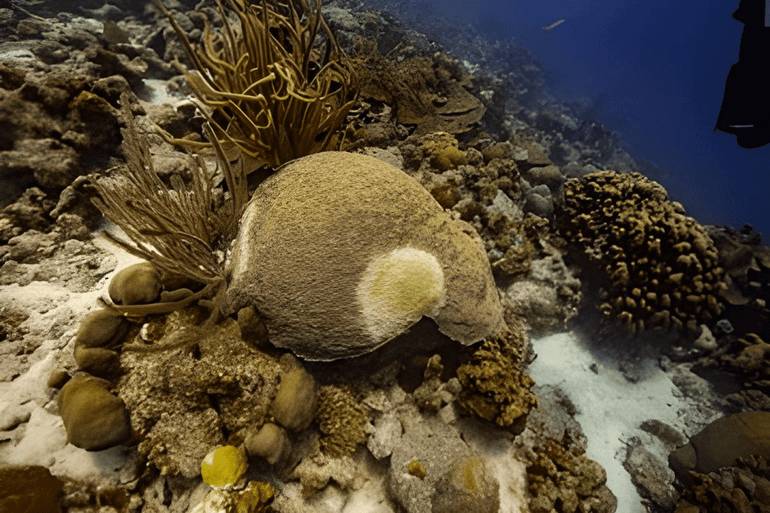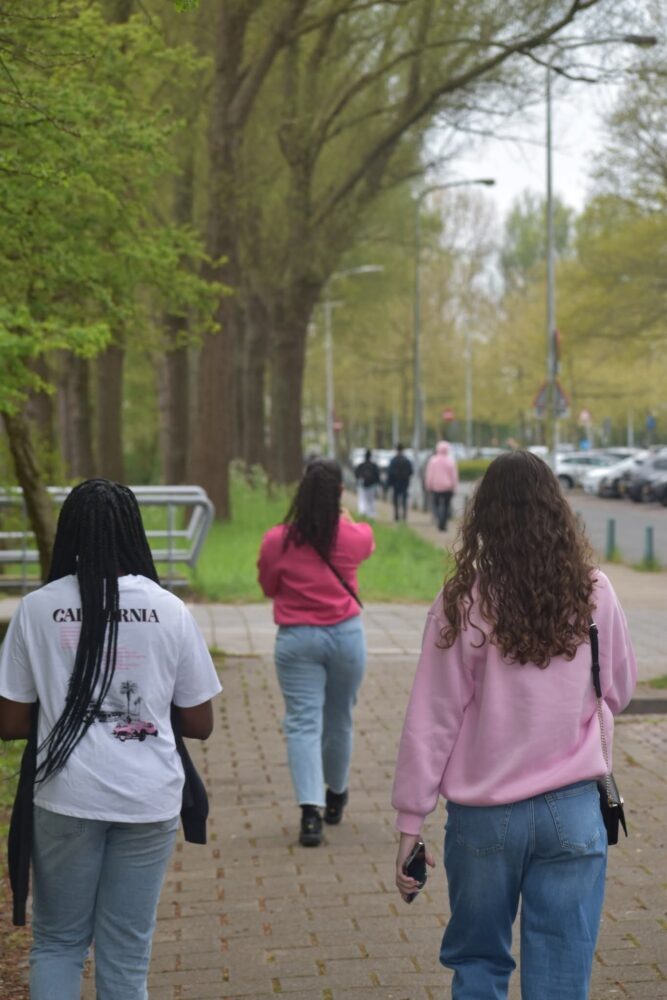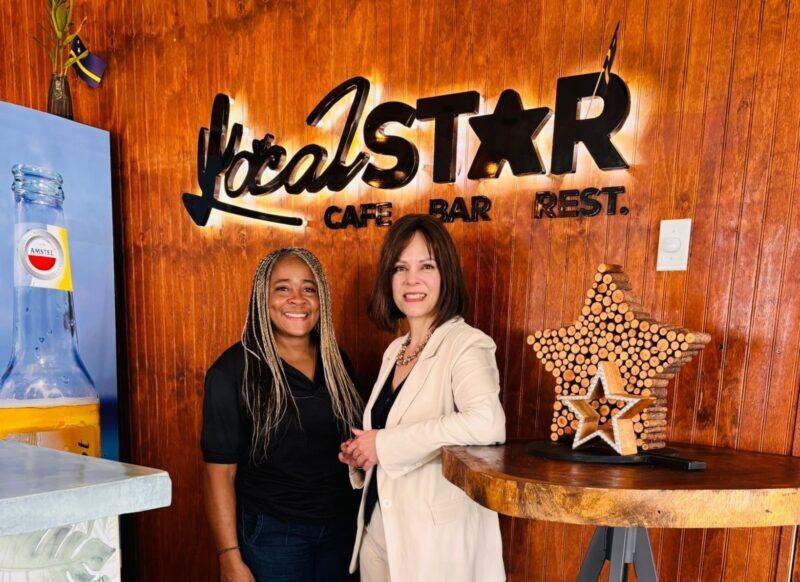Protectors of nature on Bonaire have sounded the alarm before, because of a coral disease that is ‘highly contagious’ for the reef. The spread of the Stony Coral Tissue Loss disease has become more extensive.
Swimming, diving, or snorkeling is already forbidden in certain areas. The recent measures are in place till the end of September. What will happen after that is unclear, says marine biologist Roxanne Francisca (Stinapa).
Francisca hopes that more action will be taken on a political level all through the Kingdom. “Till now the weekly debates have been about how to minimize the economic impact of the coral disease for Bonaire. How for instance to lessen the travel cancellations. Now it’s time to talk about the future of the coral. About coral restoration.”
Major concerns about marine life
On Little Bonaire also parts of the coral are dying. The biggest concern of Reef Renewal, which takes care of recovery and protection, is that certain types of coral around Bonaire will disappear completely. “Although many coral sorts look alike, there are different sorts with diverse DNA. This determines how they react under different circumstances.”
“Working towards retainment and recovery can only be done as long as there is something to retain and recover,” says the organization. “We are losing coral at high speed, so we are very concerned about this threat to our ecosystem.”
At the moment Reef Renewal is building a nursery on land for corals, that can then be placed on the reef. They hope to multiply the corals that have shown a certain resistance towards both the disease as well as to the rising sea temperatures.
Do politicians take the problem seriously enough?
“I think that most people do not understand how serious this is, but it’s difficult because there remain so many question marks about the disease itself”, says Francisca, the marine biologist who spoke about a natural disaster if more coral dies.
From the politicians in The Hague there has been no reaction to the situation, notes Francisca. “We know that The Hague has been notified by the municipality, but I have not seen an official response. What do Bonaire and the Kingdom do to protect the reefs, and how much are we willing to invest?.”
Seawater gets warmer
The coral in all of the Caribbean area has been facing more difficulties because of the rising temperatures of the seawater because of climate change. Now a so-called ‘coral bleach warning’ has been given for the ABC islands. Coral bleaching happens when corals are under stress because of changes in temperatures and turn completely white because of that.
El Niño is a natural phenomenon in the Great Ocean that causes warmer seawater. The rising temperature impacts the weather in big parts of the world. Never has the Caribbean Sea been this warm.
But warm seawater has some advantages too, says Francisca. “On other islands, they have seen that de disease spreads more slowly when the water is warmer. So for Bonaire that could imply that we have a bit more time to implement measures. But if the water cools off, the disease will be right back.”








